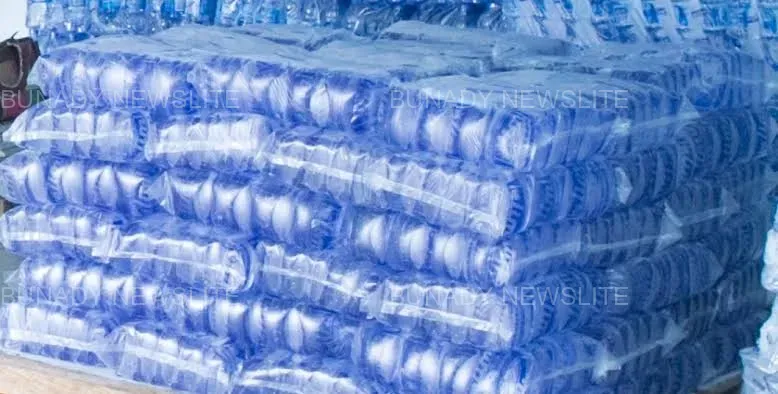The National Agency for Food and Drug Administration and Control (NAFDAC) has launched a crackdown on the illegal production of sachet water also known as ‘pure water’ in the Federal Capital Territory.
The crackdown on the illegal production of water by NAFDAC began in Dutse Alhaji and Dawaki areas of the FCT on Tuesday, March 4, with the agency shutting down some companies.
It was gathered that several water production facilities were shut down by operatives of the agency over various issues of compliance including unsafe environments, use substandard equipment, and the failure to meet regulatory standards.
Speaking on the process, Kenneth Azikiwe, the FCT directorate for NAFDAC said over 40 water factories have been shut down in the FCT since the crackdown on illegal water production companies started.
He said, “This directive comes amid rising concerns over producers using substandard materials, stamping products with unauthorised identification numbers, and operating in unsafe conditions,” he stated.
Giving more insight into the process, Azikiwe said 14 bakeries have also been closed down in places like Mararaba, Nyanya, Gwagwalada and Zuba areas of the FCT due to some issues with safety regulations.
“This operation required strong synergy and collective commitment to tracking down individuals involved in the illegal manufacturing and distribution of substandard products,” Azikiwe state.
Also urging Nigerians to remain vigilant in the purchase of their consumables, Azikiwe said that NAFDAC is working with security agencies to ensure the health safety of citizens.

